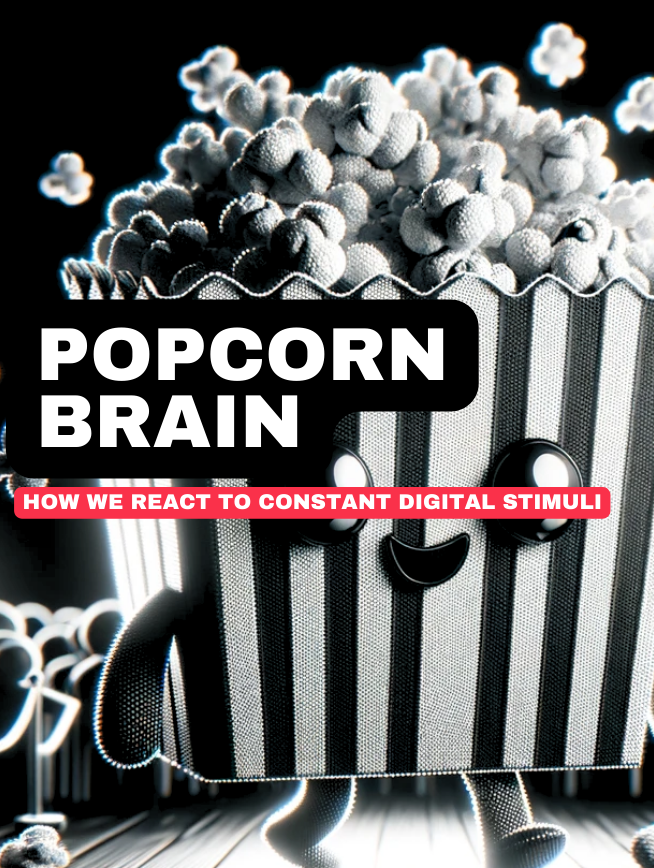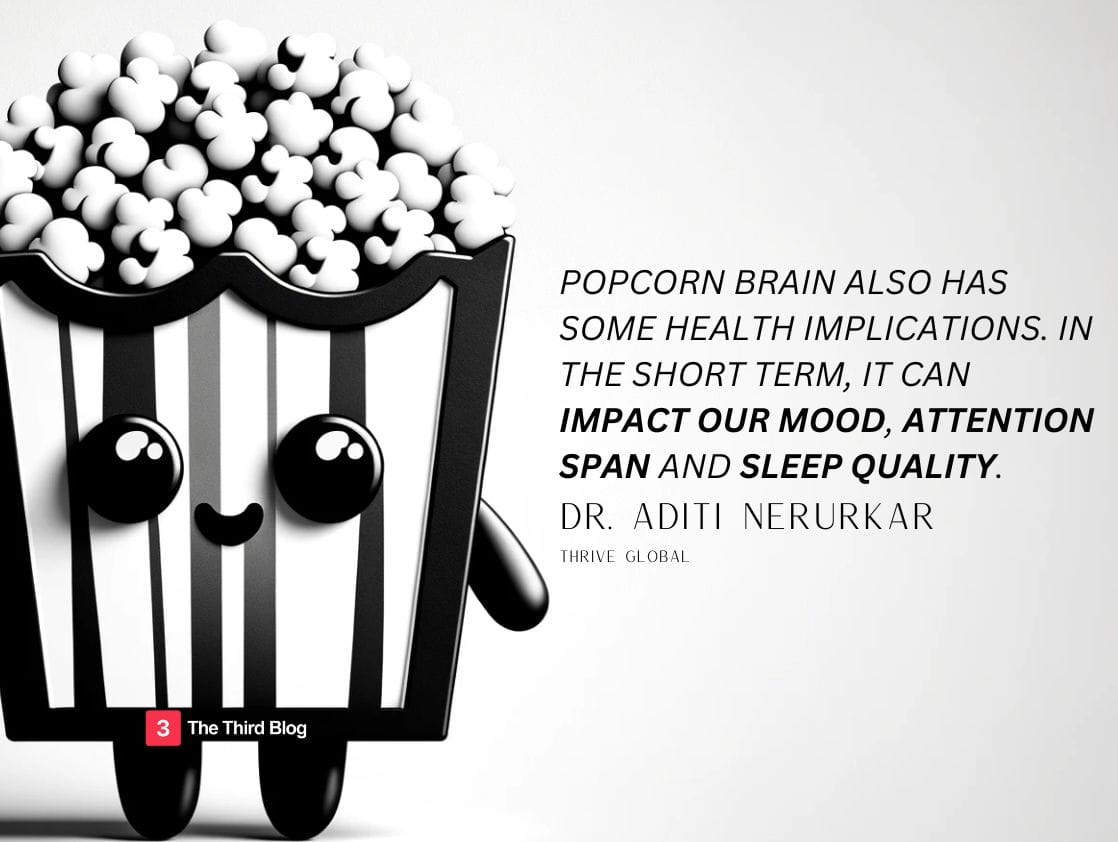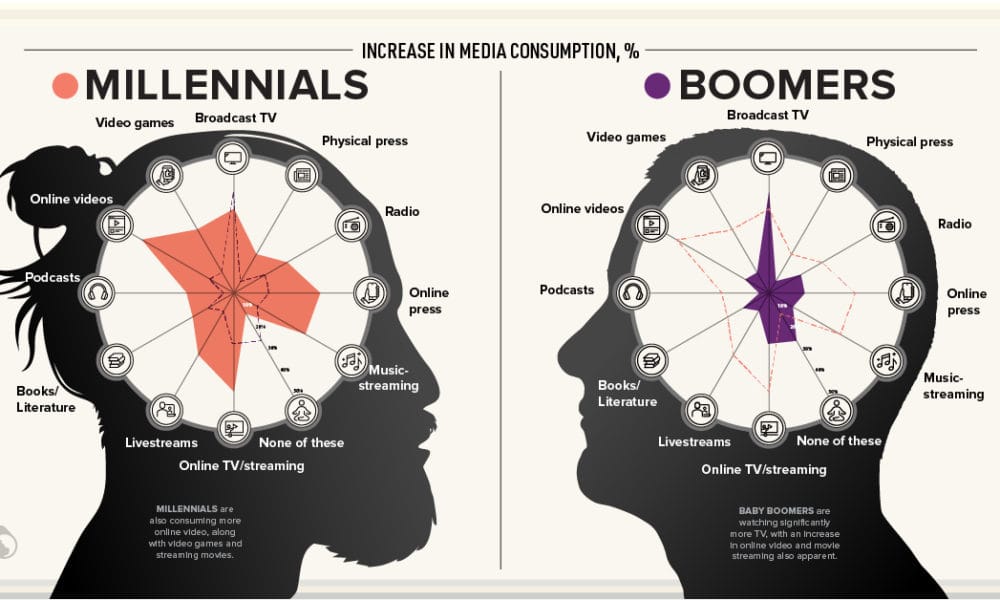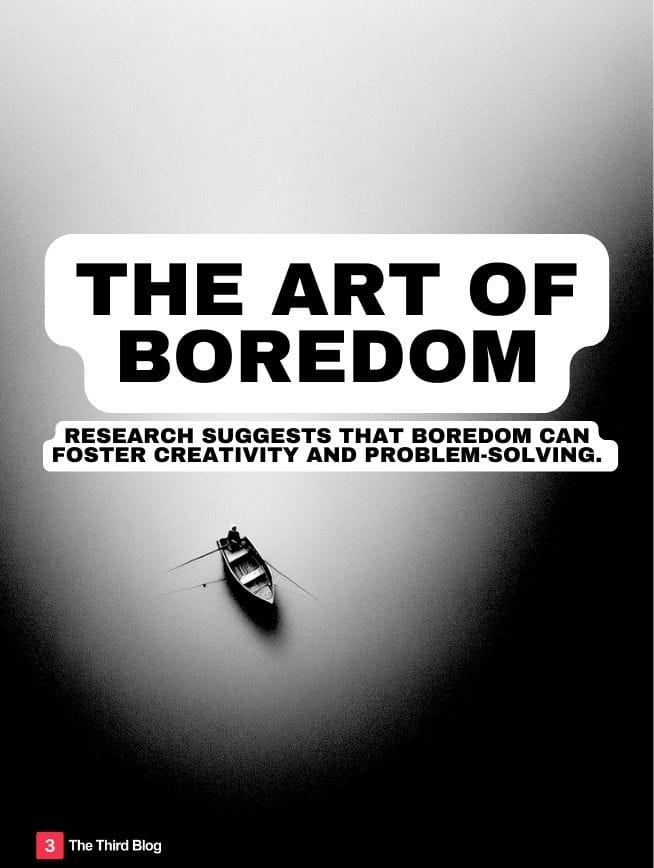Unpopping the 'Popcorn Brain'
TLDR: "Popcorn brain" describes a reduced attention span and craving for instant gratification due to excessive digital media consumption. It affects focus, deep thinking, and patience. Counter it with mindful media use, digital detox, and embracing offline activities for a balanced life.

I've written a lot about the effects of DIGITAL recently and it's a fascinating topic. Like many, I live much of my life online; I work in digital marketing, watch countless online shows, play games and endlessly browse YouTube. But in an era where our lives are intertwined with digital technology, a new cognitive phenomenon, often termed as 'Popcorn Brain', is emerging. Credit to The Diary of a CEO for informing me of this phrase. Let's take a deeper look at what it means:
What is Popcorn Brain?
Imagine popcorn kernels bursting in rapid succession - now apply this imagery to your thoughts and attention span. That's the essence of popcorn brain.
This non-clinical term describes a cognitive state influenced heavily by our interaction with digital media. The primary culprit? The endless streams of quick, engaging content delivered by our smartphones, social media, and online streaming platforms.

The Digital Dilemma
1. Shrinking Attention Spans:
Our ability to focus on a single task without getting distracted is dwindling. This change is akin to channel surfing - never settling long enough to dive deep into any topic, task or conversation.
I eat and I watch YouTube, I walk and I listen to music, I've even played mobile games in the shower. There is a constant need for mental stimulation and a constant distraction with the likes of our smartphones, tablets and connected devices. Take one look at a busy metro and 90% of travellers will be engrossed on their phones. Out at dinner and your partner goes to the bathroom? - what do you reach for? - it's honestly embarassing.
2. Craving Instant Gratification:
Rooted in Digital Feedback Loops: The craving for instant gratification is a direct result of how digital platforms are structured. Social media, for instance, rewards us with likes, comments, and shares, offering immediate feedback and rewards for our interactions. This creates a psychological loop where we begin to crave these quick responses.
Dopamine and Reward Systems: Each notification or social media interaction triggers a release of dopamine, a neurotransmitter associated with pleasure and reward in the brain. Over time, our brains become conditioned to seek out these quick dopamine hits, reinforcing the craving for instant gratification.

Strategies to Counter Popcorn Brain
1. Mindful Media Consumption:
Awareness is the first step. I first quit social media about 13 years ago after I caught myself doomscrolling on instagram. I had a sudden realisation and epiphany that sharing my awesome life online was counterproductive and shallow. If I wanted to share great stories and experiences with friends it was better for me to do it in person.
I travelled to the US for a month for work and in that time had issues logging into my account. This 4-week break was enough to break my 'cycle' and I quit instantly.
Take stock of your own day. I wrote here about how on average, people spent 6 hours 37 minutes on their phones each day during 2023. THIS IS MAD. Put your phone away while you work, don't sleep with it by your bed and start tracking how much you're browsing online. Like me, I think you'll be surprised!
2. Digital Detox:
Periodically disconnect to give your brain a much-needed respite. Engage in reading, outdoor activities, or hobbies that don't involve a screen. This is especially beneficial first thing in the morning and last thing at night.
If you're browsing for hours each day, you might be lonely. Reach out to a friend, colleague or partner and have a conversation instead.
3. Cultivating Deep Focus:
Dedicate uninterrupted time to tasks and gradually increase this duration to train your brain for deeper focus.
Remember, often starting a task is the hardest part. Just say to yourself - "I'll just do 5minutes' and see how far it gets you. On top of this, this past year I've also found the wonder of 'focus music' through apps such as Endel. I don't understand the intricacies of binaural beats, or if it's placebo, but it works - and that's what I care about.
Perhaps I can do a blog on this in the future...
4. Embracing Boredom:
Let yourself be bored without immediately resorting to digital devices. This can boost creativity and help your brain reset to a more balanced state.
As mentioned, the trick is to catch yourself in the moment. This will take practice.

Conclusion
The phenomenon of popcorn brain is a byproduct of our digitally dominated lifestyle. While technology brings numerous advantages, it's essential to engage with it mindfully.
By acknowledging our digital consumption patterns and actively seeking a balance with offline activities, we can alleviate the effects of popcorn brain. The goal is not to demonize technology but to harness it in a way that promotes cognitive health and a more focused, enriching life experience.
Food for thought.
T3B


